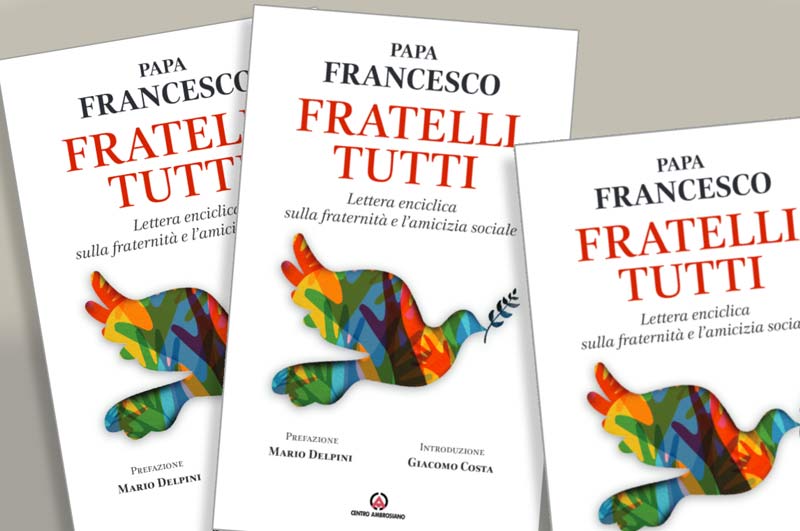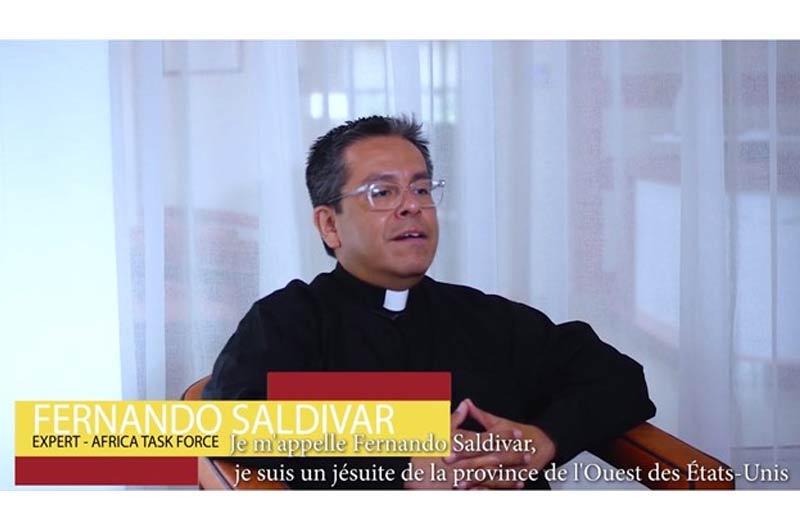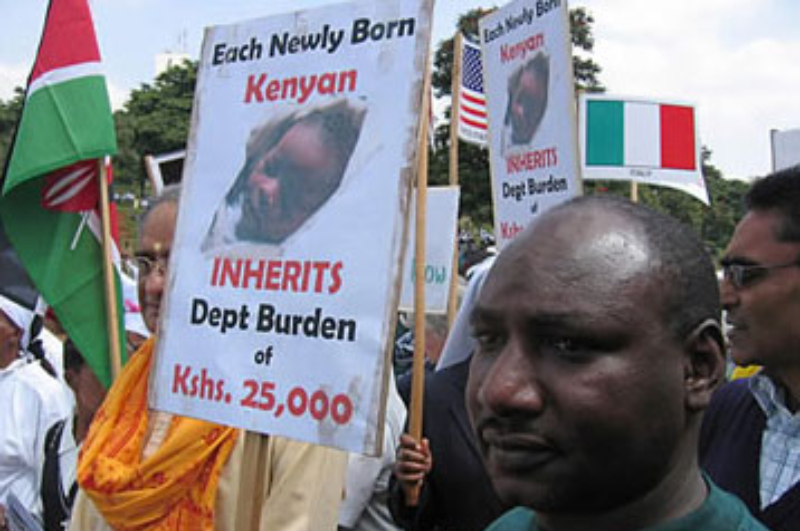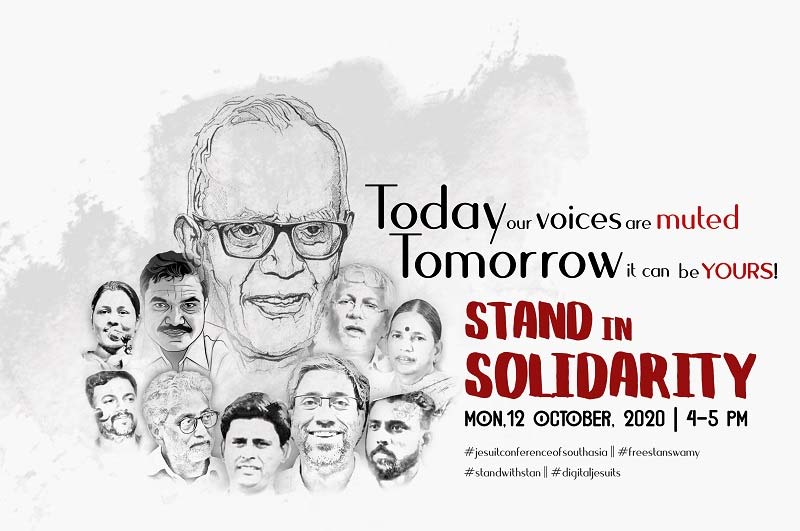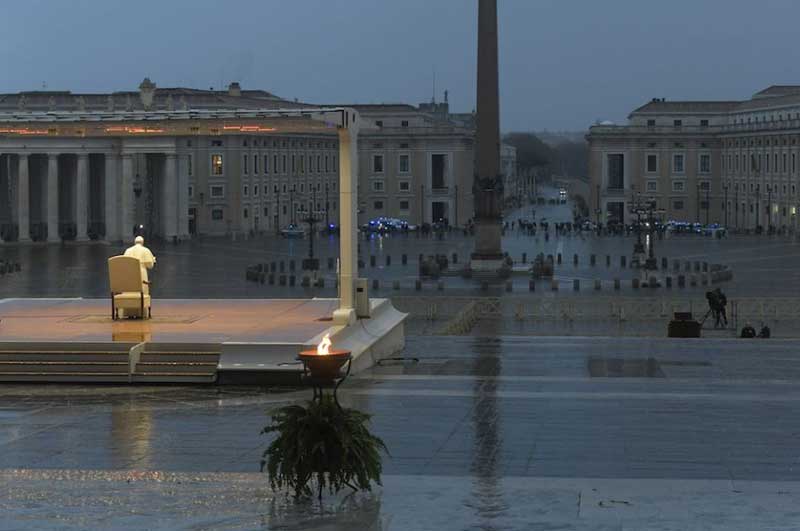


Catholic parishes across the world are closed. Millions of Catholics have been unable to physically take part in the celebration of the Mass for weeks, and they may not be able to again for months.
Simply put, the coronavirus pandemic is fundamentally changing how we do and be church.
What could these changes mean for us in the long-term? How will they affect us in the years to come, well after the initial threat of the pandemic has passed?
Over the past week, NCR surveyed two dozen theologians, social directors, non-profit leaders and pastors, asking them each to consider these questions. We're presenting the answers over the next three days.
Today, we focus on questions of community. In the following days, we'll focus separately on questions of church governance and the church's social mission.
Recognizing the whole
Social Service Sr. Simone Campbell is executive director of Network, a Catholic social justice lobby.
 When this coronavirus pandemic abates, I pray that we as a church will have awoken to the fact that we are indeed one body. As one body, we have a shared responsibility for each other. Pope Francis and the popes before him are correct when they say that the economy should serve people, not the other way around.
When this coronavirus pandemic abates, I pray that we as a church will have awoken to the fact that we are indeed one body. As one body, we have a shared responsibility for each other. Pope Francis and the popes before him are correct when they say that the economy should serve people, not the other way around.
If we learn this lesson, then the Gospel will live in our lives in new ways.

Healthcare will be seen as a faithful mandate of Jesus' care for the lepers, the blind man and the widow whose son has died. Health care will return to being a ministry that as a matter of faith must be given to all. Health care will cease being big business that is exploited by the pharmaceutical companies and the hospital systems.
Wages to support a family will be a matter of justice, both within the church and outside it. Wages sufficient to allow all to live in dignity are key to the survival of this one body. Maybe we will learn the lesson that when people have the reality of enough to live on, then they can invite others into their lives. Inviting others in is the heart of a flourishing church.
When this is over, I pray that we learn the lesson as one church that Jesus calls this body to be whole. Working for justice becomes seen commonly as a Gospel mandate. COVID-19 has made us aware of our interconnectedness beyond racial and economic divides. Let us learn that this one vulnerable body can be vibrant church when we work together for justice and the wellbeing of the whole.
A paradox of incarnation
Lisa Fullam is a professor of moral theology at the Jesuit School of Theology of Santa Clara University in California.

The effect of COVID-19 on the church is a paradox of incarnation. On one hand, our communities are less physical, less incarnate: A simple hug, coffee with a friend, gathering for church, are put on hold for the indeterminate duration. Priests webcast from empty churches; the faithful participate from home. The profound physicality of the sacraments is absent.
On the other hand, our communities are more physical, more incarnate. I spend more time attending to my physical micro-community of spouse, home, garden and neighborhood. There is something eucharistic about virtual dinner with friends — we break bread together, apart — in an event that is more than a phone call.
In our technological age, distance need not have stopped me from virtual dinner with friends across the country, but oddly it did. And we start with the physical. "Are you OK?" "How's your mom?" Likewise, in virtual church, there is a chorus of "What do you need?" "Can I shop for you?" Our virtual parishioners are more eager than ever to respond to the simple incarnate needs in others' lives — as simple as the bread and wine that we shared pre-pandemic.
In an age in which so many are drifting or storming away from the church, will the experience of the absence of the common loaf and the common cup leave the rest of us more free, more able to demand justice and mercy in the church and more willing to seek and practice those virtues elsewhere, if we are not answered? And to bring the sacraments with us?
Creativity for college students
Michael Galligan-Stierle is a former president of the Association of Catholic Colleges and Universities, a former staffer at the U.S. bishops' conference, and a long-time professor and campus minister at public, private and Catholic universities.

We are in challenging times, but this is also Holy Spirit time. Coping with the pandemic and ensuing economic hardship provides a unique opportunity to advance spiritual growth opportunities through online platforms that up to now have been only modestly developed by Catholic university ministers. As you read this, campus ministers worldwide are creating new ways to care for collegians: streaming a Mass or prayer service, hosting pastoral counseling chats via Zoom, using Facebook and Twitter to share links to meaningful religious music and recording podcasts that offer reflective questions for solo nature walks. These are good first steps.
However, if the Catholic community is to effectively continue its thousand-year history of pastoral care to college students on an intellectual, spiritual and moral level, now is the time to double-down on creativity. Now is the time to search online for sites and delivery systems that can develop student leaders, build community, deepen faith, form conscience, cultivate one's best self and empower just actions.
For example, it is one thing to watch Mass online. Imagine if you could don a VR [virtual reality] headset and immediately be enveloped within a community singing and praying at Mass? At this time of historic economic inequality, it is one thing to be exposed to a new website that creatively teaches the principles of Catholic social teaching. It is another thing altogether to engage with students in acts of justice, service and charity while practicing social distancing.
God is present in all things, and so the question of the day for the university chaplain is: In what ways can new media engage collegians in experiencing God's loving embrace and simultaneously propel them to becoming better versions of themselves, not only today but long after the pandemic subsides?
New spirit of fraternity
Archbishop Roberto Gonzalez Nieves leads the Archdiocese of San Juan, Puert o Rico.
The Catholic Church is already being changed by the coronavirus pandemic.

I am moved by the way our faithful, religious, deacons and priests are adjusting to the restraints and new circumstances that the coronavirus has placed upon us. I sense a new spirit of fraternity emerging from our collective suffering during this Lent.
Here in Puerto Rico we were throttled about by two major hurricanes three years ago that devastated our small archipelago, parts of which are still recuperating. Some 4,000 people died in the hurricanes and their aftermath, and our island still grieves. Even so, for two years after the hurricanes I could detect a more humane conviviality among all of us. Then that began to slip away.
Beginning last Dec. 28, 2019, we began to experience a series of island-wide earthquakes, two major ones, above 6.0 on the Richter scale. Those tremors continue to this day. Once again that spirit of fraternity and solidarity began to spread again.
Now with the emergence of the coronavirus pandemic I am struck by the immediate spirit of cooperation by almost everyone in spite of the restrictions imposed by the quarantine and curfew that were implemented on March 15 and will likely continue, at least, to April 30.
In general people are going out of their way to help their elderly neighbors; priests have extended their ministry to the virtual avenues of communication; our faithful seem to be adjusting to this new reality even as many of them express their yearning to return to their "churches;" most of our parishes have groups of "Caritas Parroquiales" and they have been reaching out courageously in service of the homeless and the poor, risking their own lives. And I could go on with many stories.
Obviously, we are saddened that this Holy Week will be devoid of our traditional devotions, processions, etc., and the ability to come together in worship. However, this will make our faith deeper and more existential.
I am including with this reflection a brief video prepared by a parish youth group in our archdiocese. I encourage you to view it. It has helped me to be renewed in the joy that is ours as we celebrate the Easter Mysteries.
I believe it can help all of us as we reflect upon the future of our beloved church after the coronavirus pandemic.
Seminarians experiencing lessons in real time
Fr. John Kartje is the rector/president of Chicago's Mundelein Seminary/University of Saint Mary of the Lake.

With their campuses shuttered, seminarians have returned to their home dioceses and are living among the people, priests and bishops who will receive them on their ordination day. Now they are witnessing directly the social, economic and spiritual crises of their people: empty streets, empty stores, empty pews.
Even with social distancing, they are engaging this suffering far more personally than they ever would from within seminary walls, with well-stocked cafeterias and readily accessible liturgies. At the same time, both they and their professors are discovering that distance-learning can be effective and efficient. With proper preparation time and mastery of the technology, their intellectual formation could eventually rival or exceed traditional classroom pedagogy.
After COVID-19, we will face serious discernment over the future of seminary formation. In the best scenarios during the outbreak, seminarians will have been formed in communities of three, five or 10, at the hands of excellent mentoring parish priests.
They will have experienced ecclesial community, not scripted by programs but intentionally worked at, one relationship at a time. They will have deepened their capacity for prayer with parishioners, seminarian peers and the priests within their home diocese — with a humbling appreciation for the extraordinary ministry that a priest exercises in celebrating the sacraments. They will have read deeply into the theological and spiritual riches of our Catholic heritage and learned to situate those eternal truths within their contemporary diocesan locales. And they will have received these lessons in real time as they advanced along their seminary journey, not as a hidden reality to be revealed after ordination.
When seminarians emerge from sheltering, their seminaries should embrace and advance the graces of these lessons learned, not revert to any pre-pandemic complacency.
Venturing into existential peripheries
Jesuit Fr. Agbonkhianmeghe Orobator is president of the Jesuit Conference of Africa and Madagascar, and author of Theology Brewed in an African Pot and Religion and Faith in Africa: Confessions of an Animist.
COVID-19 renders predictions tenuous. Corralled into isolated involuntary huddles, we take shelter from its tempestuous rage. The church of COVID-19 bears a striking resemblance to the post-resurrection community of the upper room — vulnerable and interconnected, yet frightful of physical proximity. Church wasn't meant to be catacombs for self-protection.
Thankfully the curtailment of sacramental and congregational worship has spurred the people of God to discover unorthodox spaces for communion and connection. We are inventing alternative ways of celebrating and ministering unto ourselves using relatively affordable online tools.
Absent any predictions, I am minded to dream of a post-coronavirus church with doors open to a new Pentecost that blows social distances away and frees consciences of bureaucratic, clericalist and hierarchical structures and certainties in which we were schooled to place our trust. I dream of a church receptive to new ways of practicing solidarity and compassion in response to Jesus' commission to be women and men for others.
If realized, this dream would embody Pope Francis' model of church-as-field-hospital, where all who minister in the name of the Gospel take a leaf from the book of heroic healthcare workers during COVID-19 and venture into existential peripheries to welcome and tend casualties of social, economic, political and ecological isolation and exclusion. In other words, a church that speaks Ubuntu: I am because you are.
Failing that, I'd settle for a post-coronavirus church that adopts tele-ministry to enable the faithful fulfill sacramental needs via Skype, FaceTime, WhatsApp or Zoom with clear conscience.

Pros and cons of virtual church
Julie Hanlon Rubio is professor of Christian social ethics at the Jesuit School of Theology of Santa Clara University in California and is working on a book called Catholic and Feminist: Is It Still Possible?
Since my family moved to Berkeley in 2018, Sunday mornings have been a struggle. We've visited at least 10 parishes in the Bay area, but we have yet to find one that feels like home. Last Sunday, attractive options for praying in community online were almost overwhelming.
A Jesuit in Los Angeles was offering Mass from his room. A former student was gathering women from around the country to reflect on the readings. Students at my school were gathering for the first night of what was to be a regular prayer time. Relief washed over me. All of the sudden I didn't have to struggle anymore.

I could gather with people who share my particular take on Catholicism — deep incarnational faith, progressive theology and a strong commitment to social justice. I could count on insightful preaching that would challenge me in a setting that felt like the home Masses I grew up with. I had the small faith-sharing group I had been searching for. I had access to a rich variety of Catholic prayer forms led by lay people. Zoom was, as one of my friends said, like "Facebook come alive." I could have the church I believed in without ever leaving my home.
Yet I also strongly believe in the idea of a local parish, where you show up to worship with people who aren't like you, but to whom you are connected as members of the Body of Christ.
I'm grateful for Sunday mornings that feel like opportunity instead of struggle. But I'm worried about what will be lost when we choose the church we prefer over the one down the street.
[Heidi Schlumpf is NCR's national correspondent; Michael Sean Winters is a longtime NCR columnist; Joshua J. McElwee is NCR's Vatican correspondent.]
Article republished from: National Catholic Reporter
Related Articles
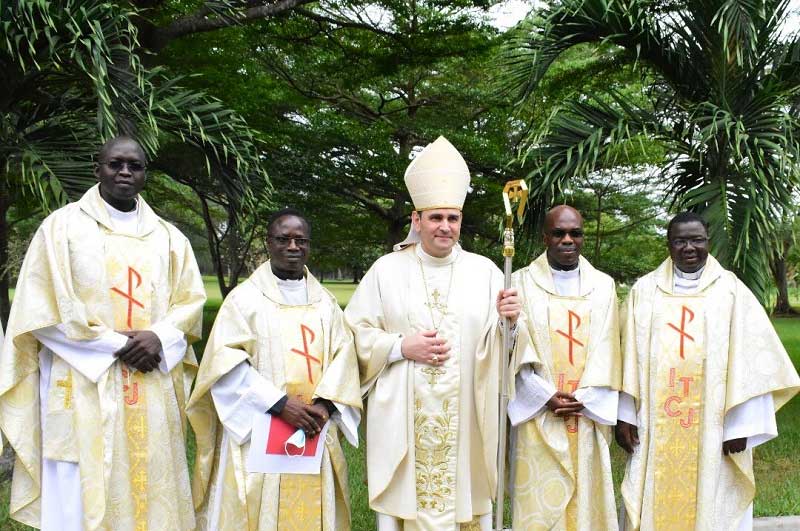

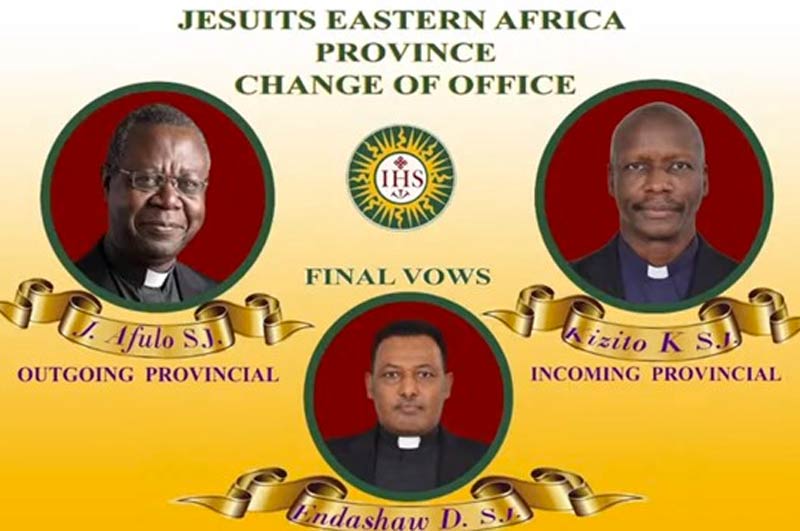
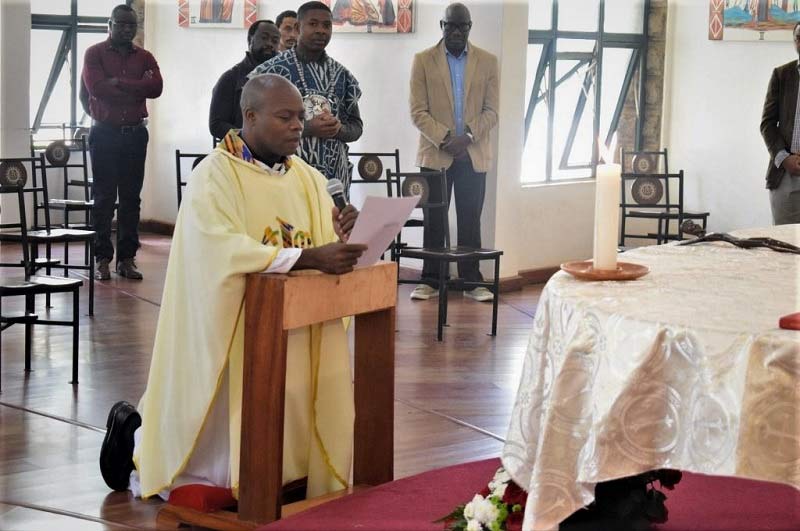
Select Payment Method
Pay by bank transfer
If you wish to make a donation by direct bank transfer please contact Fr Paul Hamill SJ treasurer@jesuits.africa. Fr Paul will get in touch with you about the best method of transfer for you and share account details with you. Donations can be one-off gifts or of any frequency; for example, you might wish to become a regular monthly donor of small amounts; that sort of reliable income can allow for very welcome forward planning in the development of the Society’s works in Africa and Madagascar.
Often it is easier to send a donation to an office within your own country and Fr Paul can advise on how that might be done. In some countries this kind of giving can also be recognised for tax relief and the necessary receipts will be issued.


